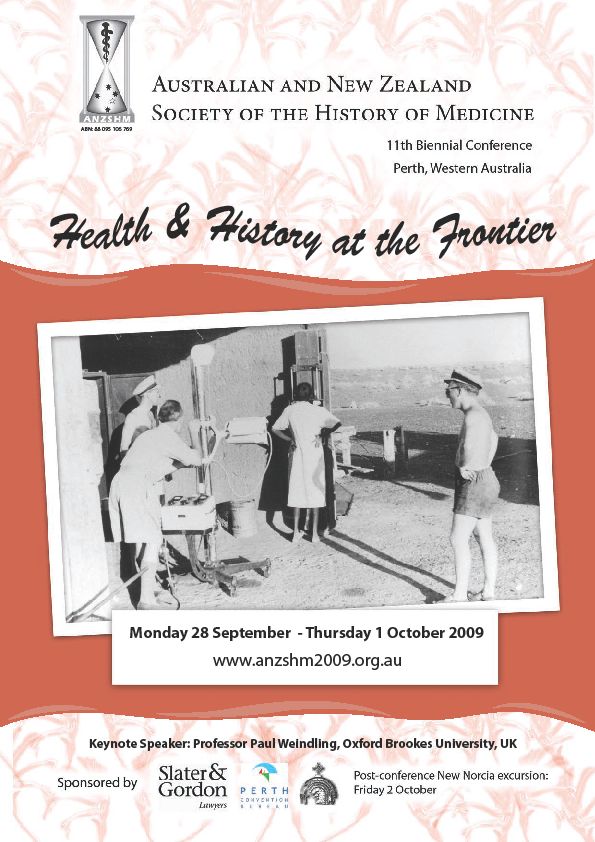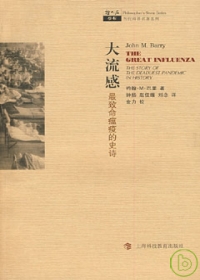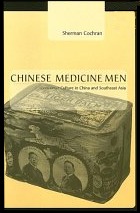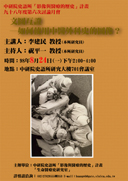|
ANZSHM
Biennial
Conference
2009 –
Grants
for
postgraduate
research
students
Location:
Australia For details of the Grants Programme and the Call for Papers see: ANZSHM website http://www.anzshm.org.au or 2009 Conference website www.anzshm2009.org.au Early application is advisable.
Conference
contact:
Assoc.Prof.
Lenore
Layman,
co-convenor
L.Layman@murdoch.edu.au |
 |

|
|
| 網 路 資 源 |
|
||||||||||||
|
|||||||||||||
| ▲top | |||||||||||||
| 活 動 訊 息 | |||||||||||||
|
|
|||||||||||||
|
|||||||||||||
|
|
|||||||||||||
|
|
|||||||||||||
|
|
|||||||||||||
Ideas and Instruments in Social Context26 - 31 July, 2009 The Hungarian National IUHPS Committee is pleased to invite you to attend and take an active part in the XXIII International Congress of History of Science and Technology in Budapest between 26 and 31 July, 2009. The XXIII International Congress of History of Science and technology will be supported by the Hungarian Government, the Hungarian Academy of Sciences, the Budapest City Council, the Federation of Technical and Scientific Societes and other local institutions and organisations. The World Academy of Young Scientists (with its seat in Budapest) will contribute to wide participation of young people from all over the world. Budapest is undoubtedly one of the most beautiful metropoles in the world. The warm hospitality of the people, excellent food and wine, relaible and frequent public transportaion, vivid culturallife, rich museums attract millions of visitors every year. Budapest is easy in reach, by air and on the ground, visitor-friendly visa policy, value-for-the-price services and goods, pleasant climate also make Hungary one of the most Popular meeting venues world-wide. Corvinus University First Circular International Union of History and Philosophy of Science/Division of History of Science and Technology (IUHPS/DHST) Website : http://www.conferences.hu/ichs09/ Council (2005-2009) President : Ronald NUMBERS, USA Past President : Ekmeleddin IHSANOGLU, Turkey Secretary General : Efthymios NICOLAIDIS, Greece First Vice-President : LIU Dun, China Second Vice-President : Fabio BEVILACQUA, Italy Treasurer : Ida STAMHUIS, Netherlands Assistant Secretary General : Éva VÁMOS, Hungary Assessors Lesley CORMACK, Canada Ubiratan D’AMBROSIO, Brazil Abdul Hafiz HILMY, Egypt Michio YANO, Japan Catherine JAMI, France Alexey POSTNIKOV, Russia 1. International Program Committee President Paolo GALUZZI (Italy) Members Razaullah S. M. Ansari (India) Jim Bennett (UK) Marco Beretta (Italy) Michel Blay (France) Christine Blondel (France) Janet Brown (USA/UK) Robert Bud (UK) Pietro Corsi (Italy/UK) Christopher Cullen (UK) Claude Debru (France) Thomas Glick (USA) Barton Hacker (USA) Robert Halleux (Belgium) John Heilbron (USA/UK) Albert van Helden (Netherlands) Eberhard Knobloch (Germany) Deepak Kumar (India) Camilo Quintero (Columbia) Jürgen Renn (Germany) Francesca Rochberg (US) Nicolaas Rupke (Germany) Sujit Sivasundaram (UK) Sona Štrbaňova (Czech Republic) Representative of ICOHTEC 2. Local Organizing Committee Chair Éva VÁMOS, Hungarian Museum for
Science and Technology, Budapest Vice-chair for local arrangements Gusztáv HENCSEY, SCOPE Meetings
Ltd. Executive LOC Mariann KINDL, SCOPE Meetings Ltd. Éva THIRY, SCOPE Meetings Ltd. Scientific LOC Lajos BARTHA, Independent Researcher György DARVAS, Eötvös Loránd University of Sciences (ELTE) Karl Hall, Central Europaen University Imre HRONSZKY, Budapest Technical University György KAMPIS, Eötvös Loránd University of Sciences (ELTE) Károly KAPRONCZAY, Semmelweis Museum, Library and Archives of the History of Medicine László KOVÁCS, Teachers’ Training College Dániel Berzsenyi Gábor KUTROVÁTZ, Eötvös Loránd University of Sciences (ELTE) Katalin MUNKÁCSY, Eötvös Loránd University of Sciences (ELTE) József NÉMETH, Budapest Technical University Mária PALASIK, Historic Archives of State Security Services Gábor PALLÓ, Institute for Philosophical Research of the Hungarian Academy of Sciences Péter SZEGEDI, Eötvös Loránd University of Sciences (ELTE) Benedek VARGA, Semmelweis Museum, Library and Archives of the History of Medicine Gábor ZEMPLÉN, Budapest Technical University 3. Congress Secretariat c/o SCOPE Ltd. Kende u. 13-17. phone : +36-1-209-6001 fax : +36-1-386-9378 e-mail : ichst09@conferences.hu Program 1. Theme Ideas and Instruments in Social Context The organizers encourage all scholars to submit fully organized scientific sessions, fully organized symposia and individual papers related to the topic : "IDEAS AND INSTRUMENTS IN SOCIAL CONTEXT” This slogan, conjuring images of
both scientific theory and practice, is meant to
suggest a broad agenda, not a restrictive one.
The organizers welcome a wide range of proposals
for papers and sessions, covering any period
from antiquity to the present and any place on
the face of the globe. Ideas mean, in this respect, all kinds of scientific, technical, philosophical, religious, political and social ideas that influenced, in a given period and in a given area, the development of science and technology. Topics that show the mutual influence of philosophical, religious, political and social ideas and scientific and technical development are highly appreciated. The analysis of ideas that brought into being or changed an instrument or an institution forms also part of the topic. All kinds of scientific and technical instruments as preserved in museums, descriptions, memories and in art belong to the topic of the congress. The influence of the instruments on the culture of the laboratories and on everyday life in the different periods is also a highly appreciated topic of the congress. The history of all kinds of „instruments” that helped or hindered the development of science and technology like legislation, international, state or local influence institutions are incorporated into the second part of the topic. For much of the history of our discipline, two separate and sometimes antagonistic approaches to the history of science have focused on the study of ideas, and on the study of instruments. However, in the past few decades, more and more scholars have striven to integrate both aspects, showing that instruments not only constitute the material culture of science, but also shape and even embody ideas. They are also central in understanding how science operates within societies, is shaped by the milieus as well as the material conditions in which it is produced, and in return contributes to the construction of these societies. The advent of “Big Science” in the twentieth century, closely dependent on highly sophisticated and costly instruments, has forcefully brought forward the importance of their study by historians of science. Moreover, the Budapest Congress will be the first to be held after our Division’s change of name from “Division of History of Science” to “Division of History of Science and Technology” in 2005. In order to explicitly bring out the ways in which science and technology have been interrelated in history and how studies of both fields are complementary, a series of plenary lectures, symposia and special sessions will be devoted to “Science and ideas in social context”, with the aim of bringing together historians of science and historians of technology, and to enhance common discussion on objects that are traditionally regarded as pertaining exclusively to one or the other discipline. 2. Scientific Activities
A joint mail from the Presidents of both the IPC and the LOC is to be sent to all Council members, IPC members, chairs of National and Scientific Comissions, as well as some selected scholars, inviting them to organize symposia for this Congress. Proposals for organizing symposia from other qualified scholars are also welcome. Guidelines concerning the nature and structure of a symposium can be found at the Congress website. 3. Business Meetings
4. Other Activities
Practicalities 1. Dates 26-31 July 2009 2. Venue Corvinus University of Budapest 3. Languages Official Documents and correspondence of the Congress : English and French ; Papers and Posters The LOC suggests that participants use DHST official languages in their presentations in plenary lectures, scientific sections, and symposia ; it also follows the tradition of previous congresses of accepting papers and posters written in other languages, including Arabic, Chinese, German, Italian, Russian, and Spanish. 4. Abstract All abstracts will be submitted to a peer review process. Abstracts can be sent to the Congress Secretariat until 15 March 2009. (The Abstract Form will be available soon.) Papers reaching the Congress Secretariat after 15 March 2009 will not be accepted. No more than one paper per person will be accepted. 5. Accommodation Special hotel rates have been negotiated for Congress participants. Most of the selected hotels are within walking distance of the Congress venue, or 20 minutes by public transportation. The actual names of the hotels and their prices will be available with the Second Circular. 6. Expression of Interest All those intending to take part in the Congress are kindly requested to complete the “Intention to Participate Form” for being included in the official Congress Mailing List. 7. Registration Fees Both on-line and off-line registrations will be open in September 2008 (more than 6 months before the early registration deadline). The registration fees will correspond to the rates of the previous conferences. All services traditionally included in the conference’s registration fee will be provided for. 8. Grants The Local Organizing Committee will provide free registration to some participants. In allocating this support, preference will be given to applicants from countries facing economic difficulties, as well as young scholars. In order to assist such colleagues, other applicants are asked to explore other possible sources of help before turning to us. If required, the LOC can provide invitation letters. Under no circumstances will the LOC contribute to travel expenses. Applicant has to send his/her Curriculum Vitae to the Congress Secretariat before 15 January 2009. Successful applicants will be informed by 15 February 2009. 9. Further Information The Congress Website will be frequently updated in order to keep participants informed about important information concerning DHST activities and organization of the Congress. 10. Important Dates Deadline for symposia proposals 30 June 2008 Second Circular (Call for Papers
in Scientific Sessions, Grant information,
Registration information) 30 September 2008 Deadline for determination of
the final symposia programs 15 December 2008 Deadline for grant applications 15 December 2008 Deadline for early submission of
scientific sessions paper abstract* 15 January 2009 Deadline for the LOC
confirmation of grant applications 15 February 2009 Deadline for the LOC acceptance
of the scientific sessions papers received
before 15 January 2009 15 February 2009 Deadline for notification of
working meeting by DHS Commission 15 March 2009 Deadline for early registration 15 March 2009 Deadline for the LOC acceptance
of scientific session papers received between 15
January and 15 March 2009 15 April 2009 Deadline for hotel reservations 30 April 2009 Third Circular (Congress
schedule, Symposia, Scientific sessions) 31 May 2009 Congress program ready 31 May 2009 Program booklet printed 30 June 2009 Abstracts on the web 30 June 2009 Opening of the Congress 26 July 2009 *Speakers applying for grant and/or request the acceptance letter for processing the registration before the early registration deadline must submit their abstracts before 15 January 2009. |
|||||||||||||
| ▲top | |||||||||||||
| 出 版 資 訊 | |||||||||||||
| ▲top | |||||||||||||
| 相 關 訊 息 | |||||||||||||
|
|||||||||||||
| ▲top | |||||||||||||
|
|
|||||||||||||
| 編輯者:「影像與醫療的歷史」計畫助理 黃文宏 | |||||||||||||
| 發行者:中央研究院歷史語言研究所「影像與醫療的歷史」計畫 | |||||||||||||
| 創刊日期:2005年05月16日 | |||||||||||||
| 出版日期:2009年07月20日 | |||||||||||||
| E-mail:huangwh@gate.sinica.edu.tw | |||||||||||||
| 「影像與醫療的歷史」研究計畫 | |||||||||||||



